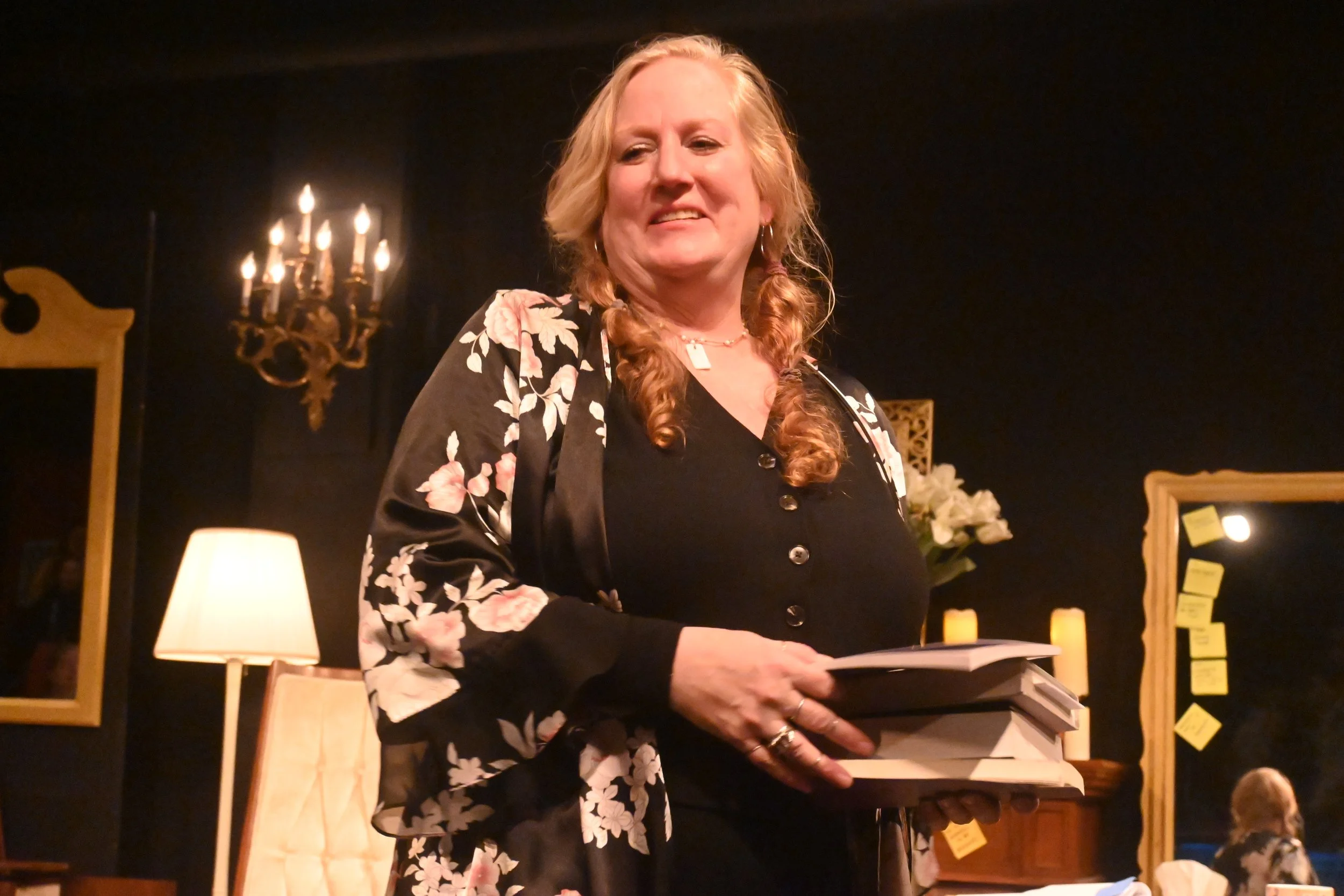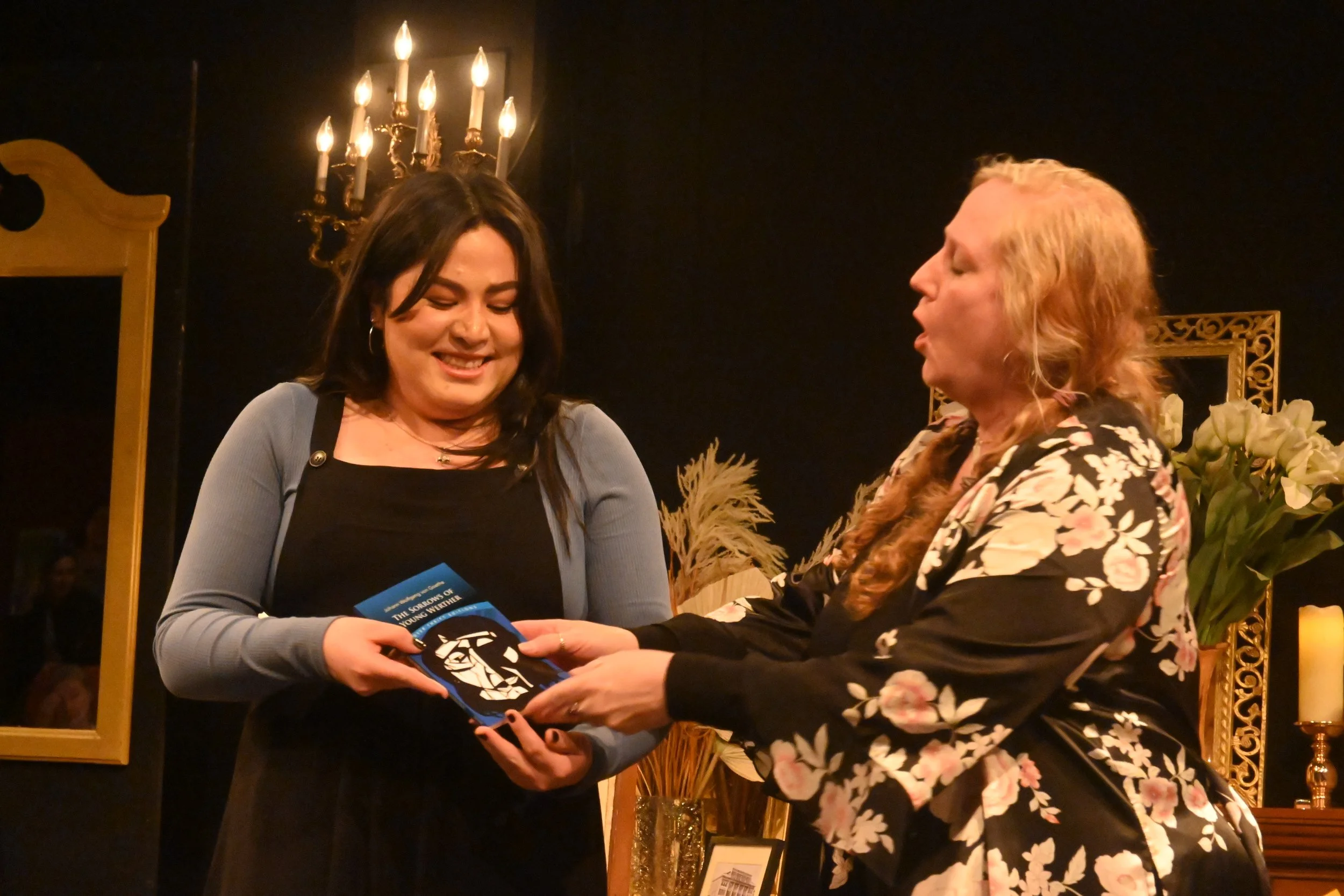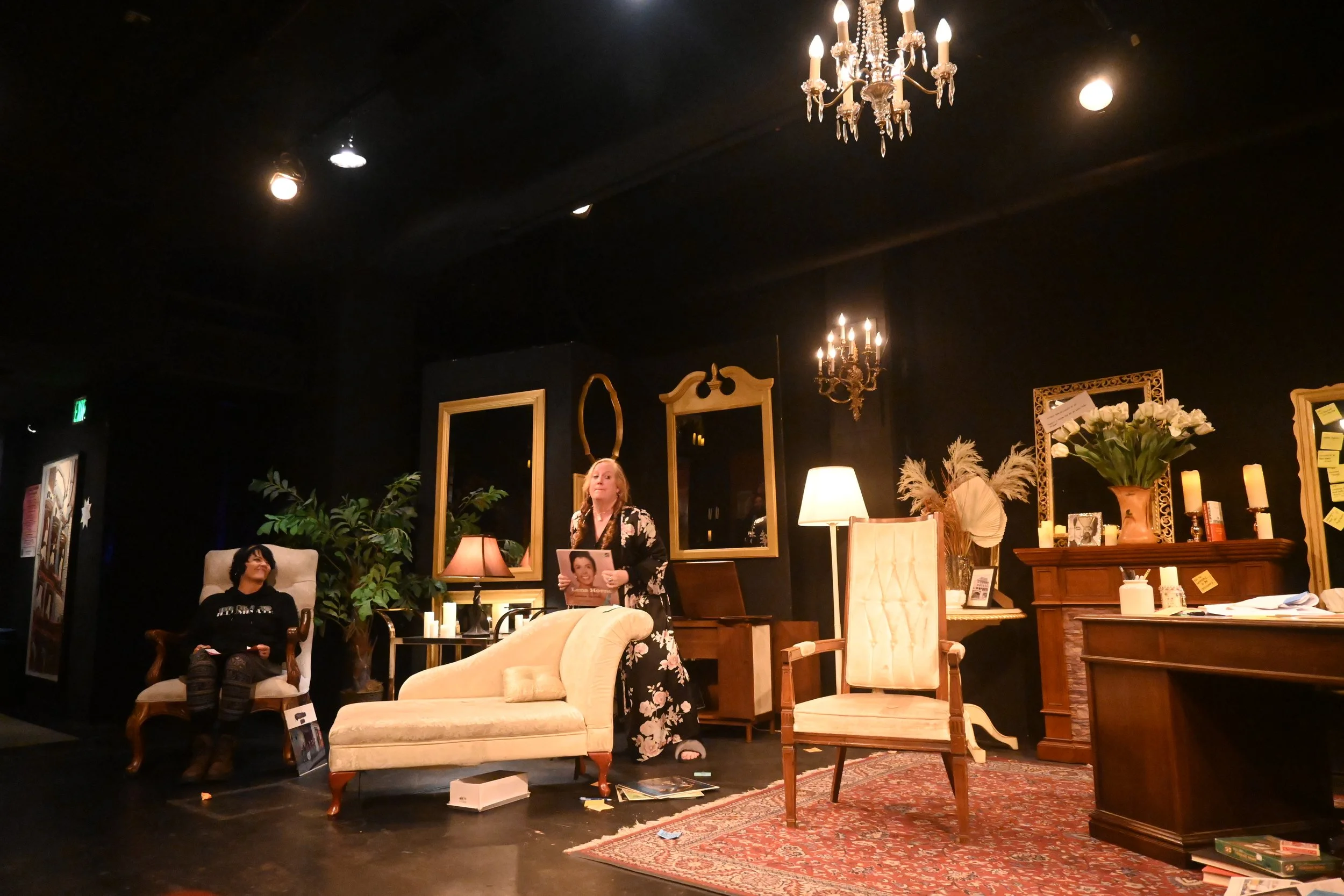On Virginia Street, just a block north of the Truckee river, lives Brüka Theatre. Sunken down a few steps from the sidewalk, neon lights shine from the windows, coloring the path for patrons and pedestrians alike.
The theatre sprung to life in 1992, according to their website, and has produced over 2,100 shows since then. On this cold Thursday evening in January, I was ushered down the stairs to sub-Brüka— a cozy basement room that undoubtedly holds the ability to transform into anywhere imaginable.
Mary Bennett, the Producing Artistic Director and an actor at Brüka, greeted me with a smile and a piece of paper. “When I say this number, can you say this?” Bennett asked me. The pink note card read: ‘525924. Track 7 on every great record.’
“Sure,” I replied, taking the note. Feeling special, and confused.
Every Brilliant Thing was originally written by English playwright Duncan Macmillan, and performed by stand-up comedian Johnny Donahoe. At the outset, it appears to be a one-man show— but that is not the case at all.
In his first performances, Donahoe would call on various unwitting audience members to take on the roles of supporting characters. Submerging folks fully into the story this way, audience participation became an integral piece of performing Macmillan’s play.
In the Brüka Theatre, I watched Bennett greet every guest that came in after me with a similar smile, note card, and request. My feelings of being special were replaced by something even better— excitement.
A spectator is asked to play the vet.
Eventually the lights brightened over the set and the audience grew silent. Bennett started with a small, smooth voice: “The list began after her first attempt. A list of everything brilliant in the world. Everything worth living for.”
“Number one,” says Bennet, lifting an eyebrow, looking up. Someone behind me in the audience enthusiastically shouts, “ice cream!”
Every Brilliant Thing is the hilarious and heartbreaking account of a person who grows up with a chronically depressed mother. Feeling guilty about their mother’s sadness, the narrator hurls “brilliant things” at her, in hopes of landing on something brilliant enough to beat out the bad thoughts.
The more their mother resists seeing and hearing of all her child’s brilliant things, the more desperate the child becomes— etching gratitudes inside cereal boxes, carving them into bread loaves. Anything that might give their mother a reason to live.
As the narrator grows older, goes to college, and falls in love, they’re introduced to their own depressive tendencies. The narrator ponders the undeniable link between their mother and their own self, and the list begins to serve a new purpose.
Bennett poured endless emotion into this performance, drawing many laughs and gasps (and at least one tear) from the audience. Not only were we invited to witness this story, we also had the opportunity to help create the story. The person sitting next to me, in fact, had a turn in the spotlight. They played the veterinarian who euthanized the narrator’s childhood dog, Sherlock Bones. And they crushed it.
\Every Brilliant Thing is wonderfully written, and Bennett was breath-taking. But the true magic of it came from the audience. As Bennett ran through sub-Brüka, breathing heavily with passion and high-fiving us all, there was a sense of connection in the little theatre.
There was no fourth wall break, because the fourth wall was never built. We experienced fiction, a performance— but it was real, too. It was life. We were all in it together, the connection was palpable. The lines were blurred and beautiful. And that feeling was one (of many) brilliant things.



